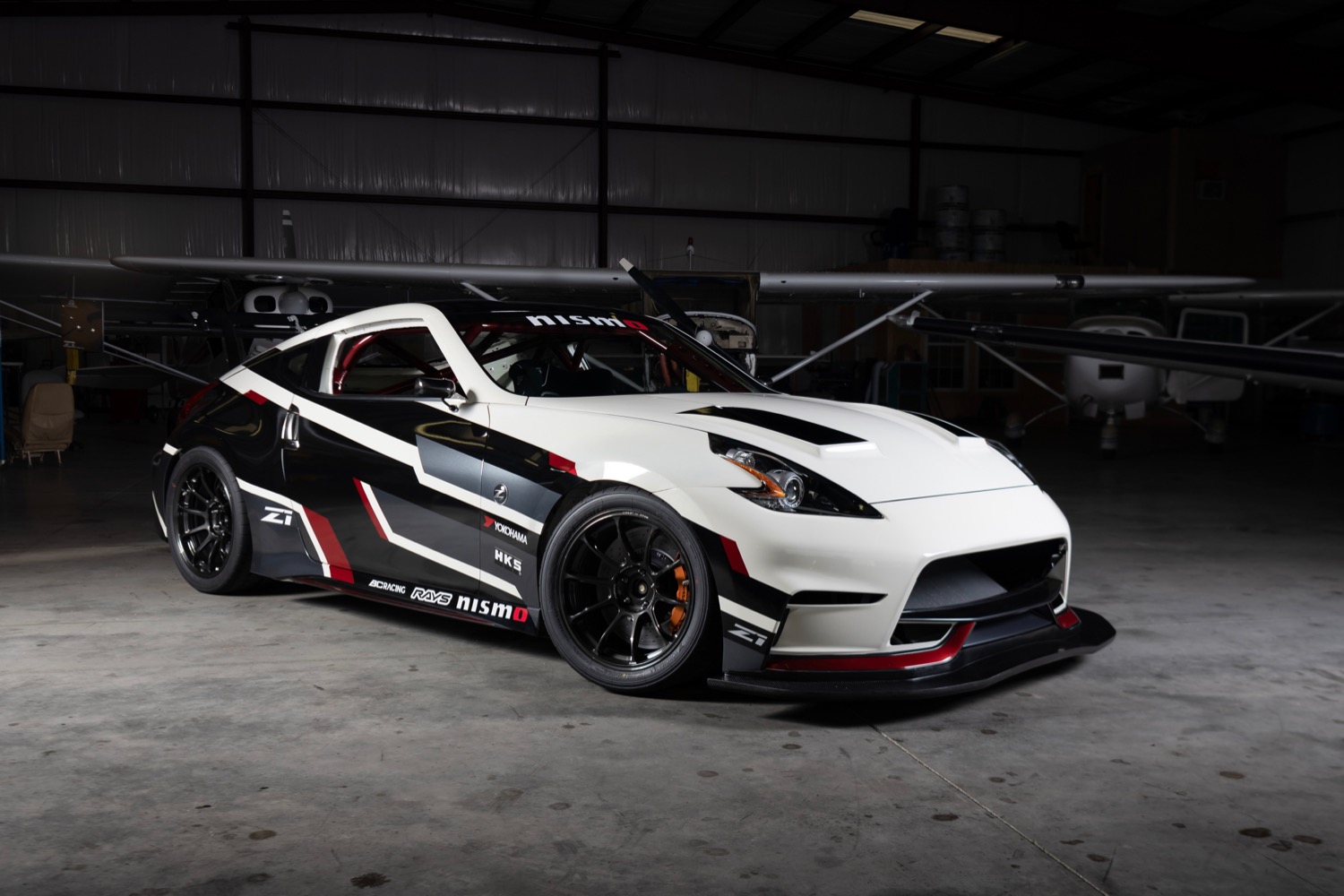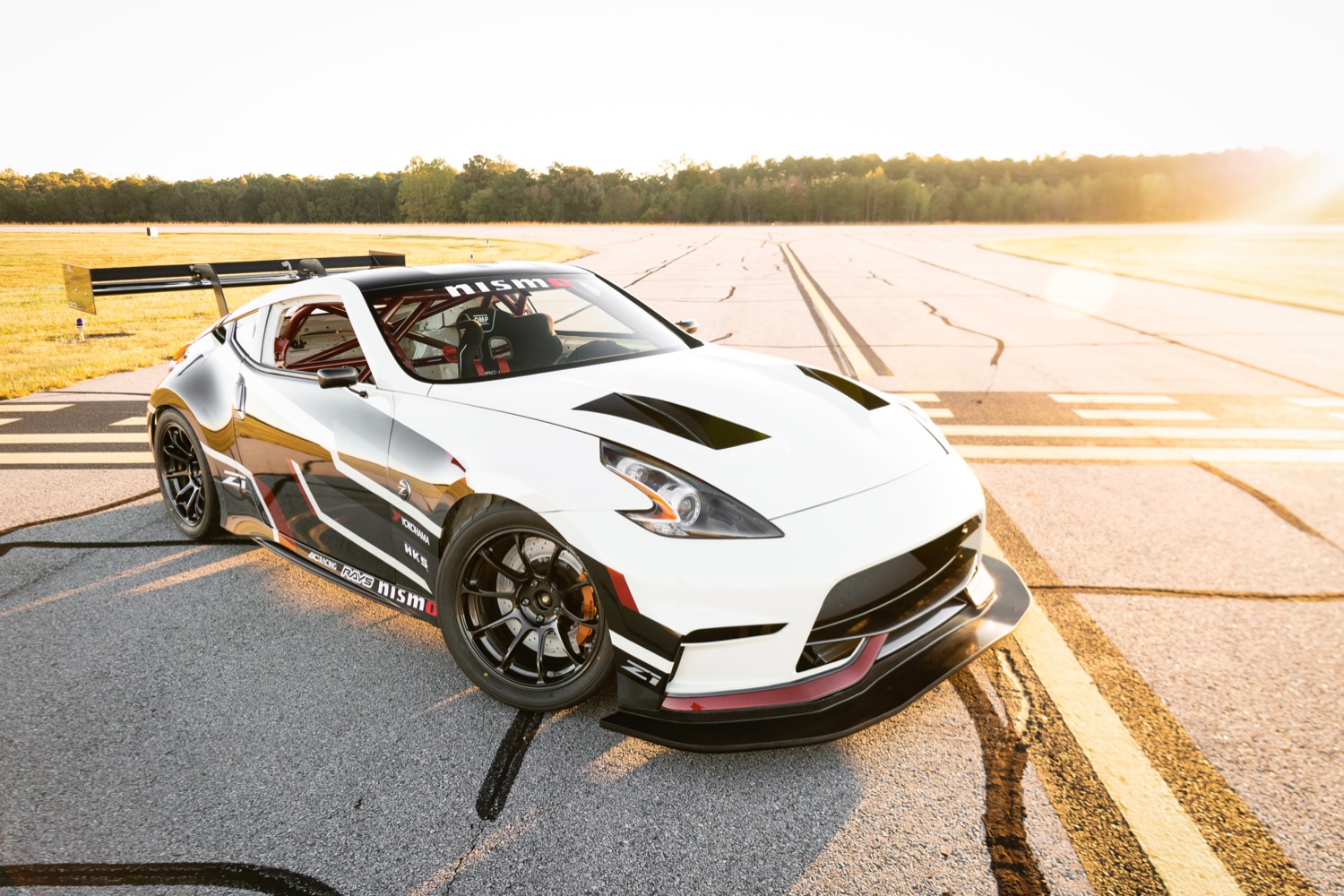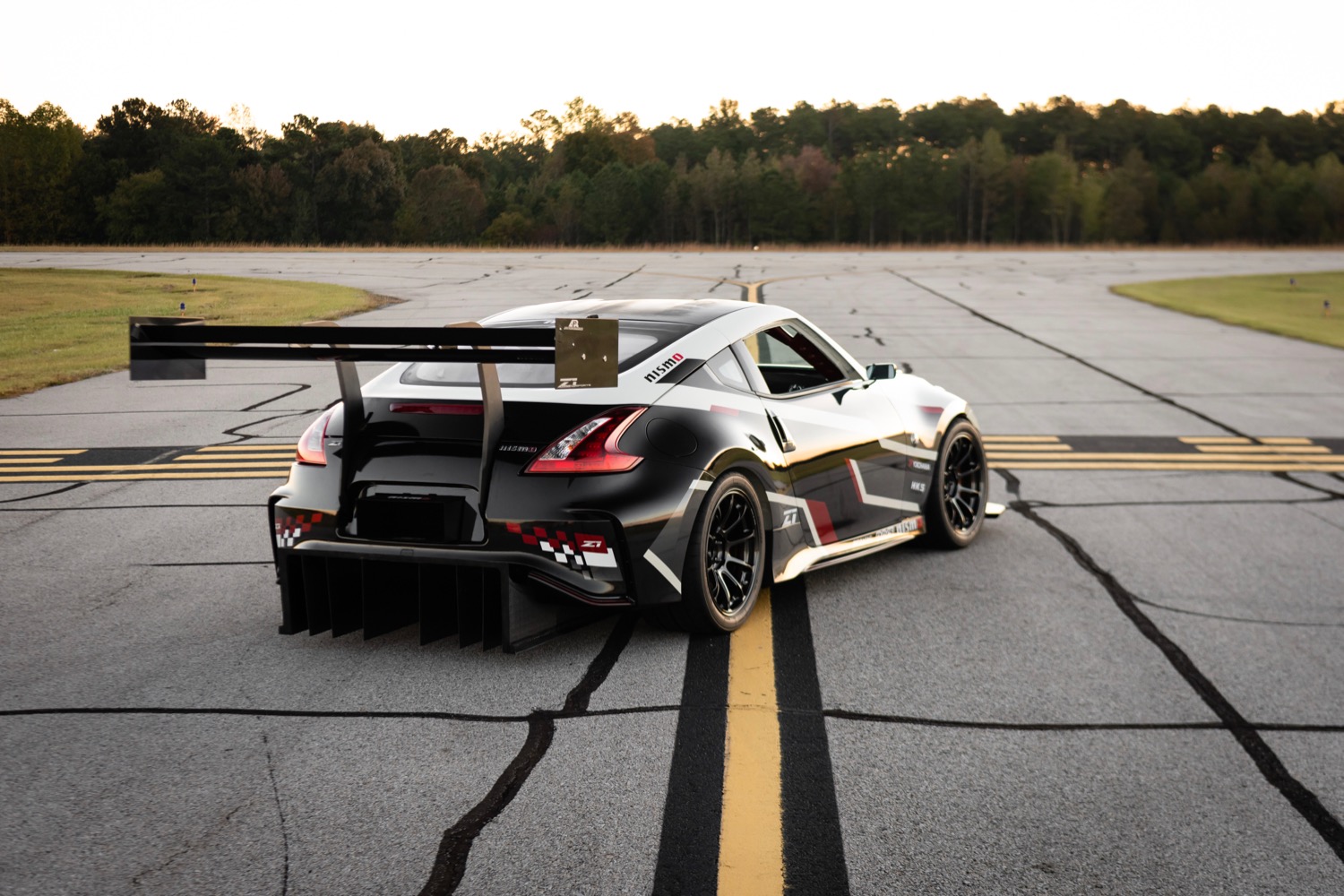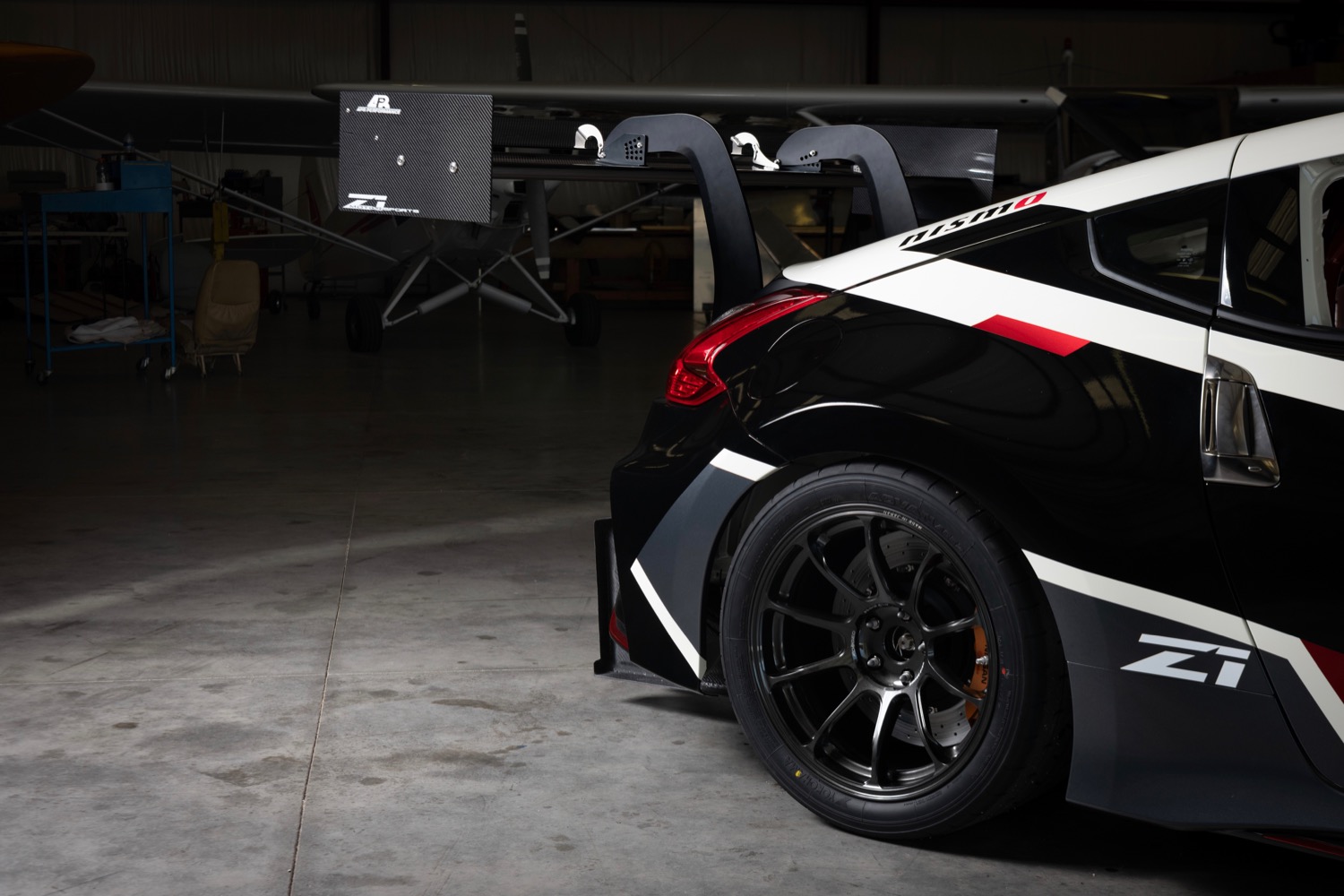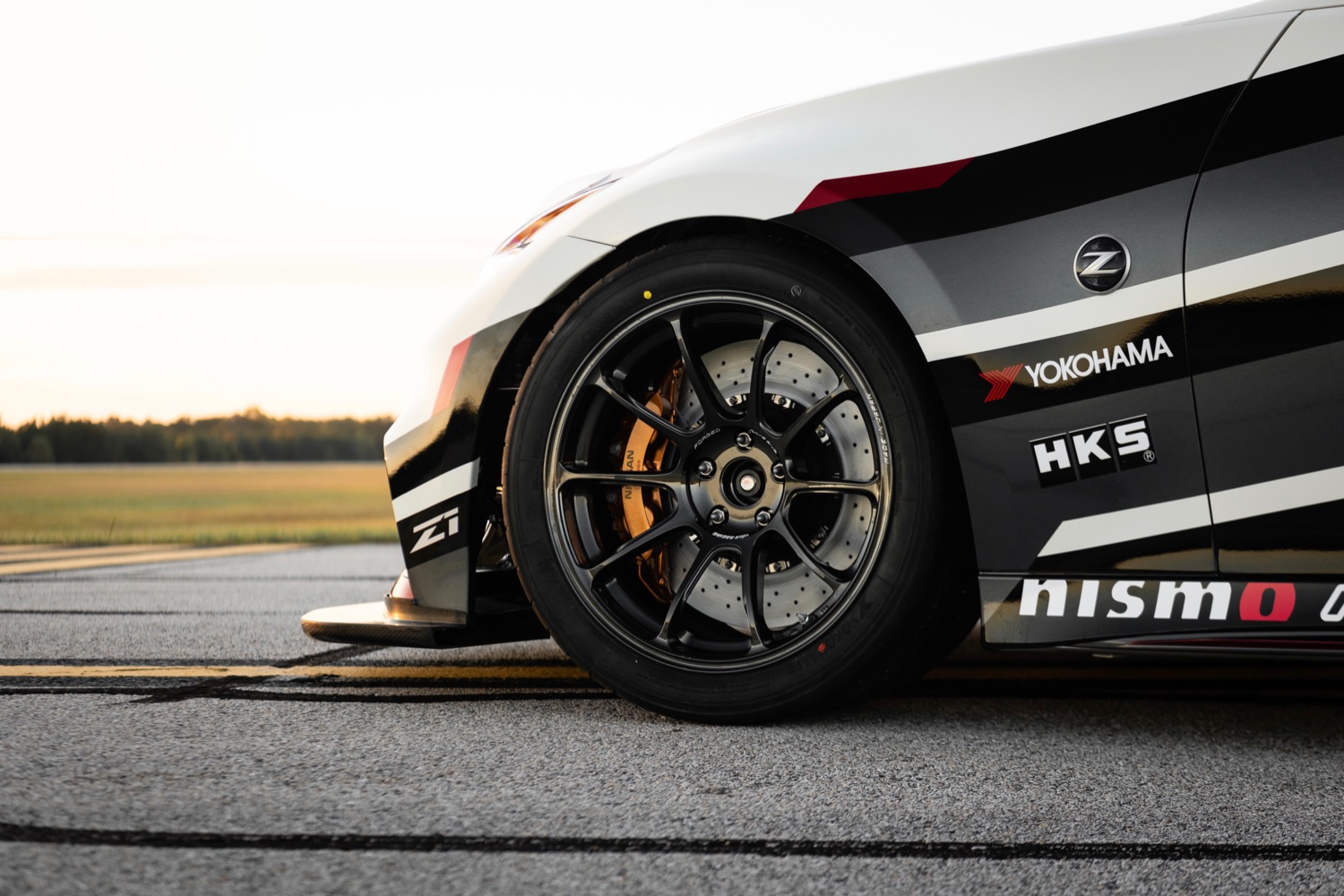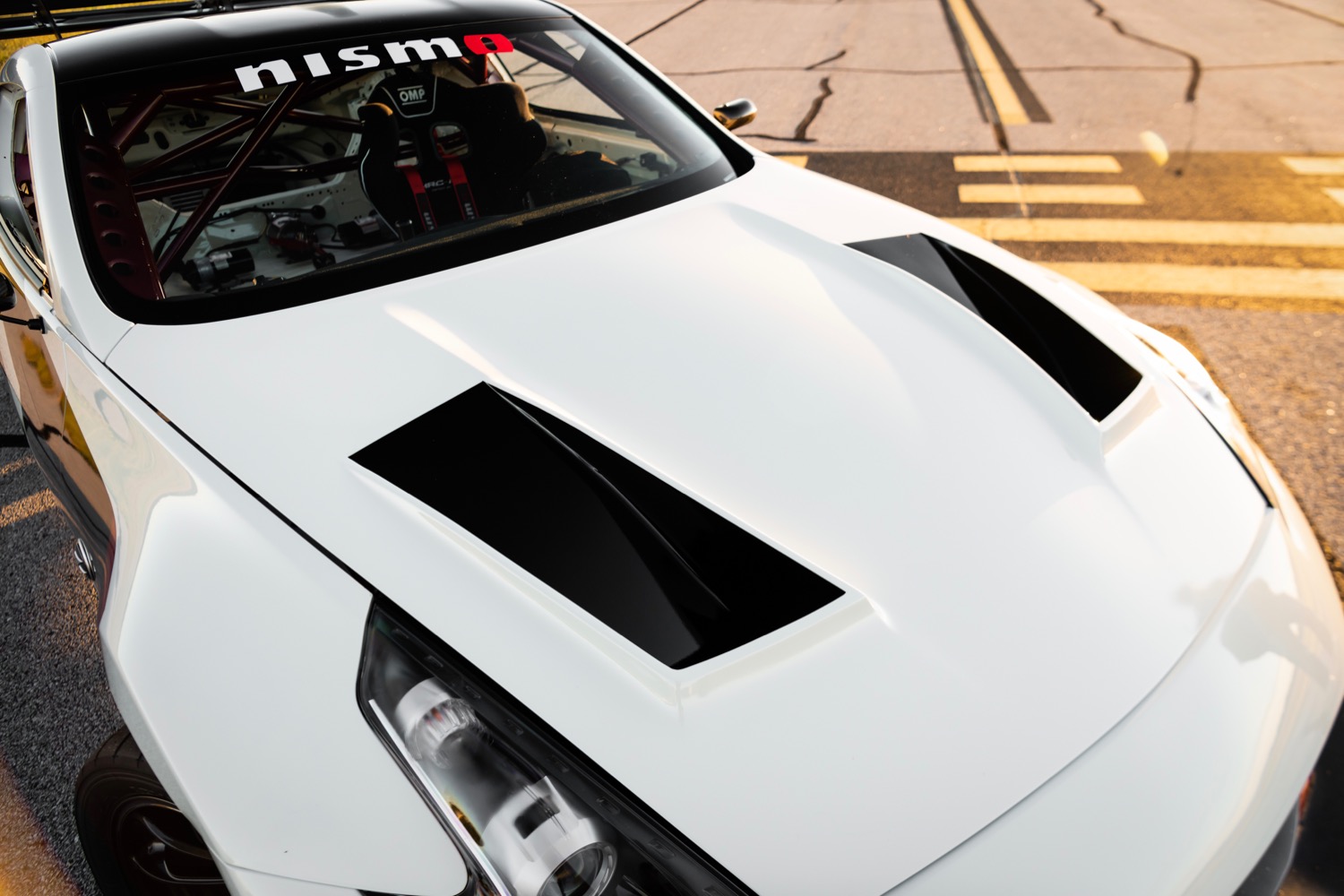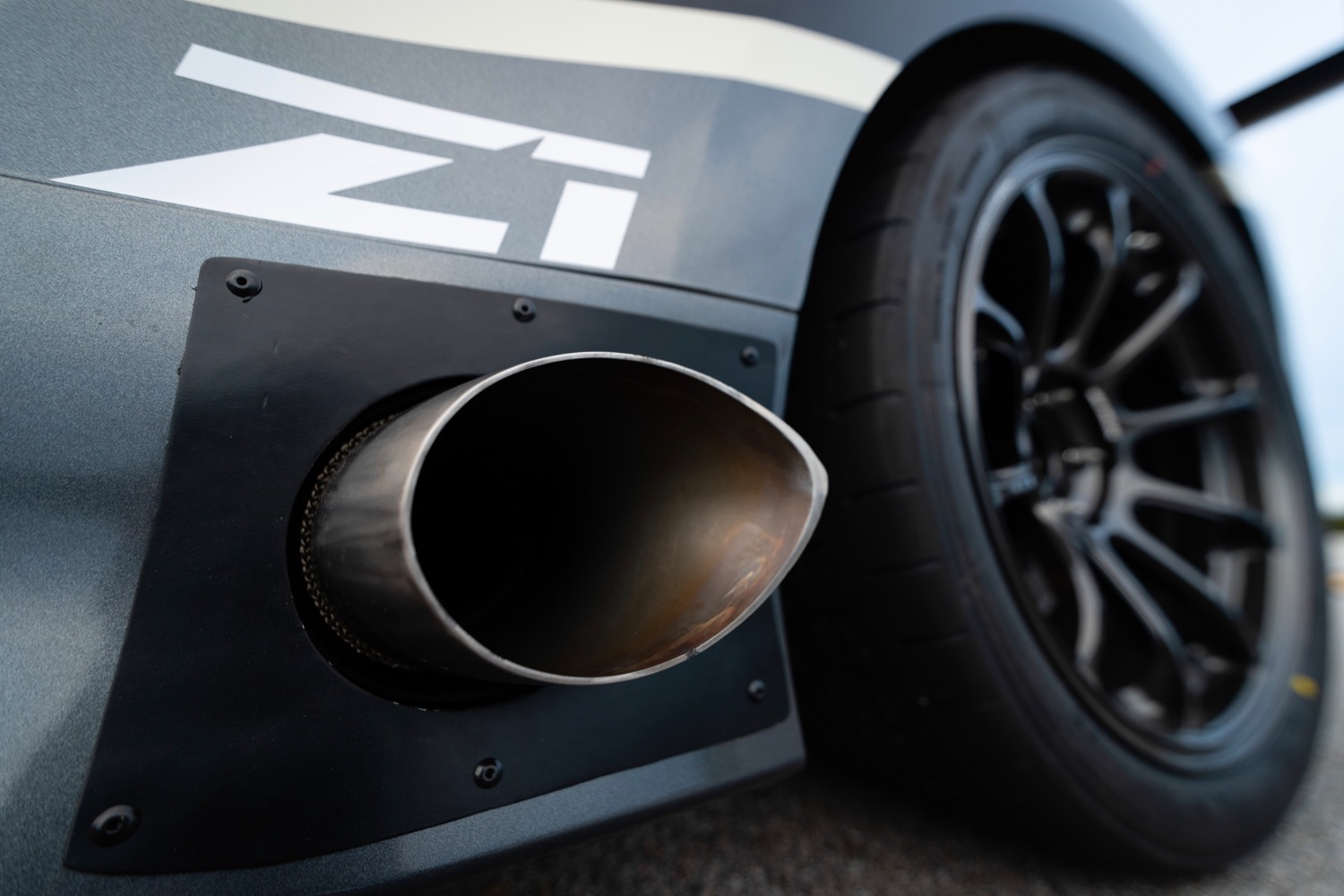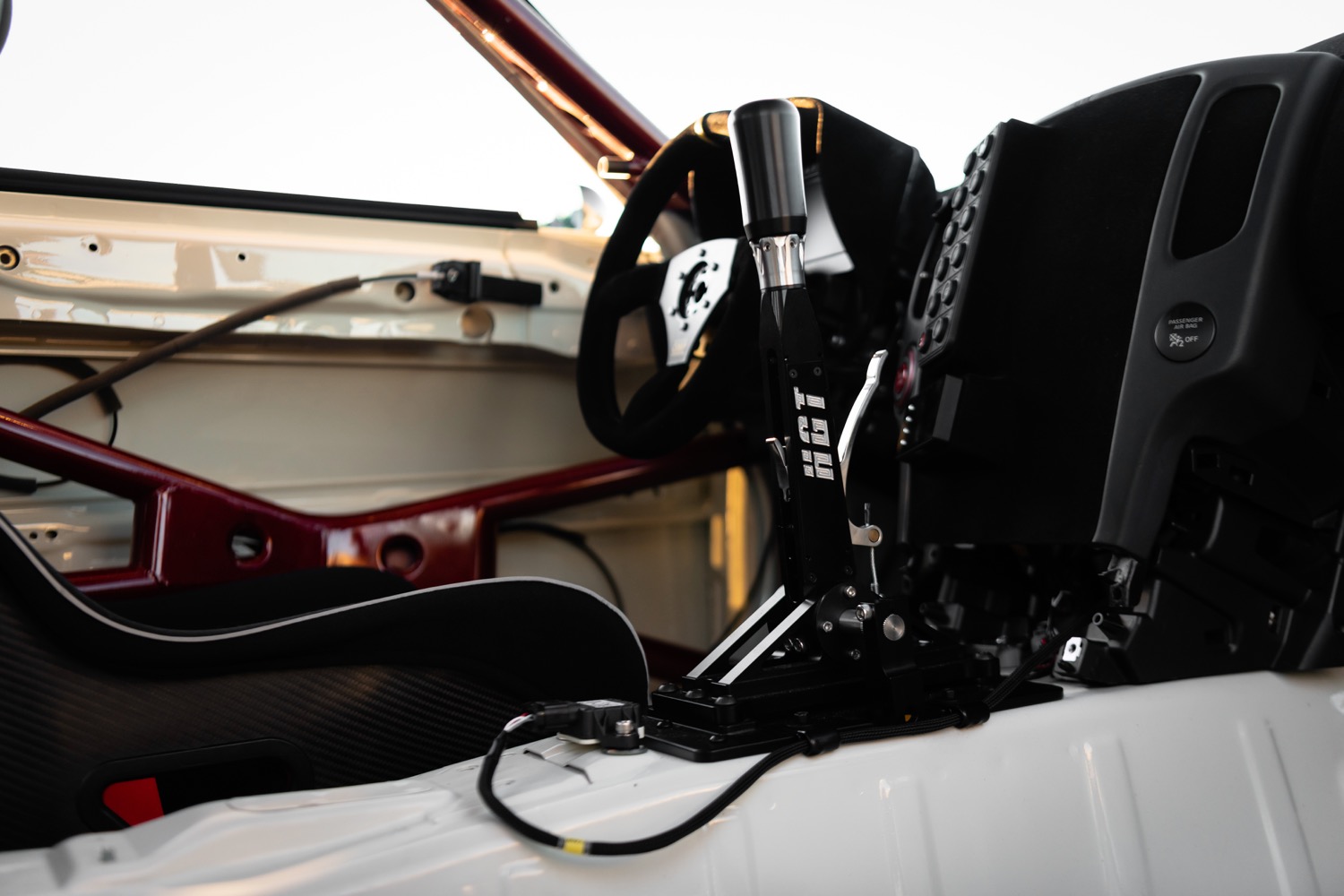The Nissan 370Z has been around for about a decade, but it still packs a lot of performance for the money. That’s something Nissan set out to demonstrate with a one-off build for SEMA 2019 — the mecca of the automotive aftermarket. The Nissan Global Time Attack TT 370Z was built for one purpose: To get around a track as quickly as possible.
To extract maximum performance from the 370Z, Nissan and partner Z1 Motorsports resorted to some tricks the average tuner could only dream of. The sports car’s body was acid dipped, a classic technique used by race-car constructors to save weight. To ensure the body shell was still rigid enough after the acid had eaten away a few pounds, a full roll cage was added. A carbon fiber body kit completed the transformation.
The car is powered by the same 3.7-liter V6 used in the stock 370Z, but souped-up to produce more than 750 horsepower. That’s more than Nissan’s own GT-R Nismo and just 10 hp shy of a Ford Shelby GT500 Mustang. The V6 makes 332 hp in stock form, so builders added twin turbochargers, a new fuel management and electronics system, and a racing exhaust system to boost output. Power is sent to the rear wheels through a six-speed sequential transmission.
Time attack is exactly what it sounds like: Drivers race against the clock to set the quickest lap time. That means you need a car with more than just raw power. The 370Z’s suspension and steering were completely rebuilt using components from Nissan’s Nismo performance division. Yokohama tires wrapped around 18-inch alloy wheels provide the grip to tackle corners as quickly as possible, while Brembo brakes provide the stopping power. A new radiator and coolers for the engine oil, transmission, and differential were added to ensure the 370Z could take the heat (literally) of on-track action.
Because this is a race car, the interior was stripped to bare metal in order to save weight and make room for safety equipment. The driver sits in a race-specific seat, with a harness and safety net in place of a three-point seatbelt and power mirrors. The custom dashboard provides the driver with essential information and nothing else.
As with most SEMA builds, the Nissan Global Time Attack 370Z is a one-off designed to demonstrate the modification potential of a car, and garner attention on the crowded SEMA show floor. Given that the current 370Z has been around since the 2009 model year, with relatively minor changes since then, it’s easy to picture buying a used model and converting into something like this time-attack car.
